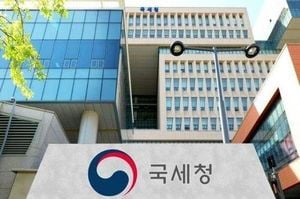Canada's political arena is heating up as the Conservative Leader, Pierre Poilievre, prepares to receive key briefings from the Canadian Security Intelligence Service (CSIS) on national security matters. This move marks an important development, particularly as Poilievre has so far resisted opting for the national security clearance necessary to access classified documents pertaining to foreign interference allegations involving his party. The reluctance to gain clearance is rooted in his belief it could restrict his ability to publicly hold the government accountable.
On Saturday, CSIS announced plans to disclose 'some information' to Poilievre, which was confirmed through government channels. This decision stems from Prime Minister Justin Trudeau's earlier request for intelligence agencies to seek avenues by which Poilievre could be informed about potential foreign interference without the requirement of a security clearance.
Under standard procedures, classified information is typically restricted to individuals with the required security clearance; nevertheless, CSIS has indicated it can utilize what's known as 'Threat Reduction Measures' to share certain information with Poilievre. A spokesperson for Poilievre, Sebastian Skamski, stated, "We are interested in what CSIS has to say." Interestingly, he also noted the impending briefing would occur without the official clearance, which the leader has deemed unnecessarily restrictive.
This development follows months of friction between Trudeau and Poilievre concerning national security and foreign interference issues, especially highlighted by allegations against certain Conservative MPs and connections with foreign governments such as China and India. Trudeau has publicly criticized Poilievre's refusal to obtain the clearance, indicating it hinders the leader's ability to protect his own party's interests against external threats.
The conflict intensified following the release of the National Security and Intelligence Committee of Parliamentarians' (NSICOP) report, which raised serious concerns about potential collaboration between some parliamentarians and foreign agents. This report illuminated instances where foreign actors reportedly interfered with the leadership races within the Conservative Party.
Specifically, Brampton Mayor and former Conservative leadership candidate Patrick Brown testified recently about alleged foreign interference during his 2022 leadership bid, implicatively linking India's consul-general to pressures placed on his campaign. According to reports, the consul-general expressed discontent over Brown's use of the term 'Sikh nation,' leading to escalated tensions within the party.
Brown claimed he received direct pressure from the consul-general, who conveyed disapproval of the language he used during his campaign. His chief campaign advisor, Conservative MP Michelle Rempel Garner, reportedly received stern communications from the consul-general, demanding Brown refrain from references to 'Sikh nation,' as they could be construed as nationalistic. Garner later denied any allegations of coercion, asserting her decisions were autonomously made.
The swirl of accusations and tensions over foreign interference has prompted strong reactions from both sides of the political aisle, casting light on the broader debate around national security issues and intelligence politicization. Experts, like Stephanie Carvin, have raised concerns this discourse could lead to the politicization of intelligence, warning against allowing party-centric motivations to overshadow serious national security inquiries.
The anticipated CSIS briefing will be the first formal step for Poilievre to receive sensitive data on potential threats, albeit without the usual security clearance protocols. The situation remains fluid as both Trudeau and Poilievre continue to exchange barbs over their respective roles and responsibilities related to national security.
Critically, this political face-off emphasizes the fine balance Canadian leaders must navigate between maintaining public accountability and addressing complex foreign interference challenges. Poilievre's stance against national security clearance could resonate with segments of the electorate apprehensive about government transparency, presenting both risk and opportunity for both the Conservative leader and his Liberal counterparts.



